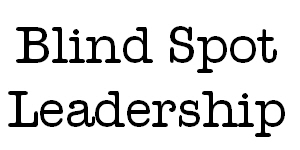Beenish Kahn, an engineer at Help Scout wrote a great article recently entitled, Why Having Hobbies Can Make You More Creative in Your Work.
When I moved to Germany in July of 2012, I had developed a specific set of hobbies that fit my American lifestyle. We had a large yard, so I gardened. I loved mowing the lawn, planting flowers, landscaping, and hoping that something edible would emerge from the seeds I had planted in my carefully built square-foot-gardening boxes.
When I was not gardening, I was renovating our home, or using my growing tool collection to create things out of wood. I loved wood-working, and spending hours in the garage with my table-saw, routers, and sanders was relaxing and joy-bringing.
And then we moved! And although I knew that my hobbies would have to change (no yard, and no garage to wood-work in), I had underestimated how much not having these creative outlets would impact me.
I developed other hobbies. I became more physically active, exercising more and running crazy, muddy, obstacle races. As fun as that is, it did not really engage my creative side.
As I started leading our Ministry Center/Gallery project (Berliner Freiraum and Gallery2) I had to start being much more creative at work. Web page work, designing brochures and postcards along with our gallery team, and trying to find creative ways of exhibiting art and using our building brought me pretty quickly to my creative limits! I realized that I had invested my self cognitively (in language learning) and physically (in exercise), but that I had not worked my creative muscles as much as I should have.
 And now that I am working more creatively, I realize that I need some creative hobbies that are not directly tied to my work. I have a few ideas – and some things I have already started doing, including working with leather. I find that the creative work I do outside of work begins to increase my capacity at work, and not just in the creative work I do. As I work through designing a pattern for something I am going to make, I have to view how small changes impact the overall product. When I make something that does not turn out the way I hoped, I have to carefully step backwards through the assembly and design to find out where the problem arose, and work on fixing my pre-conceived notions that destined me for failure. When I realize that I do not have the know-how to accomplish a certain task, I am forced to broaden my knowledge base, add “mentors”, and/or find a different solution for the problem I am facing. As I go through the monotony of stitching, I am reminded about how consistent, well-executed small tasks are what lies behind most successes.
And now that I am working more creatively, I realize that I need some creative hobbies that are not directly tied to my work. I have a few ideas – and some things I have already started doing, including working with leather. I find that the creative work I do outside of work begins to increase my capacity at work, and not just in the creative work I do. As I work through designing a pattern for something I am going to make, I have to view how small changes impact the overall product. When I make something that does not turn out the way I hoped, I have to carefully step backwards through the assembly and design to find out where the problem arose, and work on fixing my pre-conceived notions that destined me for failure. When I realize that I do not have the know-how to accomplish a certain task, I am forced to broaden my knowledge base, add “mentors”, and/or find a different solution for the problem I am facing. As I go through the monotony of stitching, I am reminded about how consistent, well-executed small tasks are what lies behind most successes.
And those are all skills that don’t only improve leadership – they also help with the challenging task of processing and surviving change.
What hobbies do you have that help keep you sane? And how do your hobbies help you process change?

Recent Comments